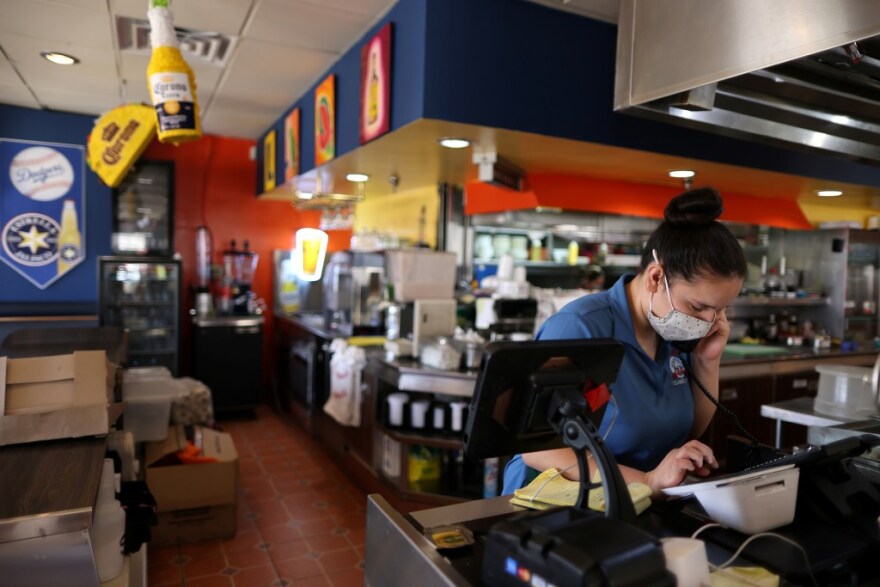With our free press under threat and federal funding for public media gone, your support matters more than ever. Help keep the LAist newsroom strong, become a monthly member or increase your support today.
California New Laws For 2024: Workers Get More Paid Sick Days

Lea este artículo en español.
California workers will be guaranteed five paid sick days a year starting Jan. 1, up from the three days that employers are currently required to provide, thanks to Senate Bill 616.
The bill, authored by Long Beach Democratic Sen. Lena Gonzalez, also extends protections against retaliation to workers who are in a union, but excludes provisions that would have granted railroad employees access to unpaid sick leave.
It was a significant, but partial victory for proponents, including advocacy groups for families and women and dozens of unions. They originally sought seven days, but the final version was reduced in negotiations during the legislative process.
The California Work & Family Coalition hailed the law — one of several measures last session aimed at improving work-life balance — as “a commonsense change.”
But trade associations representing various industries such as the California Grocers Association and California Hotel & Lodging Association, as well as chamber of commerce groups throughout the state, argued that the law would hurt small businesses that have not recovered from the pandemic, are now dealing with inflation and can’t afford the additional cost of covering for sick workers.
Reproductive Loss Law
Beginning in 2024, a new law creates a separate category of leave specifically for “reproductive loss,” which also includes failed adoption, failed surrogacies, and failed assisted reproductions, and extends to spouses and domestic partners.
The National Federation of Independent Business lists the new law among its top five “compliance headaches” for California’s small business owners in 2024, along with SB 848, which makes it unlawful for employers to refuse as many as five days of “reproductive loss leave” for miscarriages, failed adoptions and other events.
The state Chamber of Commerce had the sick leave law on its “job killer” list and recently issued guidance for employers to navigate the law’s complexities.
There’s no federal law that requires employers to give workers paid sick leave. California became the second state in the nation to adopt a paid sick leave policy in 2014, but now provides less time than 15 states and many of its own cities, including San Diego, Los Angeles, San Francisco, Oakland and Berkeley.
Upon signing the bill on Oct. 4, Newsom said too many people were still having to choose between skipping a day’s pay and taking care of themselves or their family members when they get sick.
“We’re making it known that the health and wellbeing of workers and their families is of the utmost importance for California’s future,” he said in a statement.
This isn’t the first time a sick leave expansion has been introduced, but the COVID-19 pandemic amplified the need. In March 2021, a new law required larger employers to provide as many as 10 more days for quarantines or vaccine side effects. But that benefit went away, along with federal tax credits that paid for it, six months later.
-
At a time when many other Southern California newsrooms are retreating and shrinking, LAist’s journalism has never been stronger or more ambitious.
-
DHS Security Kristi Noem was giving a news conference when the senior senator from California tried to interrupt with questions.
-
“It makes it appear that the United States or America is a battleground,” one veteran Marine said.
-
An LAist analysis found tech problems and policy changes during the 2024 count raise questions about a reported 10% downturn in unsheltered people in the city of Los Angeles.
-
People Over Papers is a site that tracks crowd-sourced ICE sightings. As of Monday, the app had received 7.1 million unique visitors.
-
Undocumented immigrants and mixed-status families are learning how to assert themselves — and prepare for worst-case scenarios.












